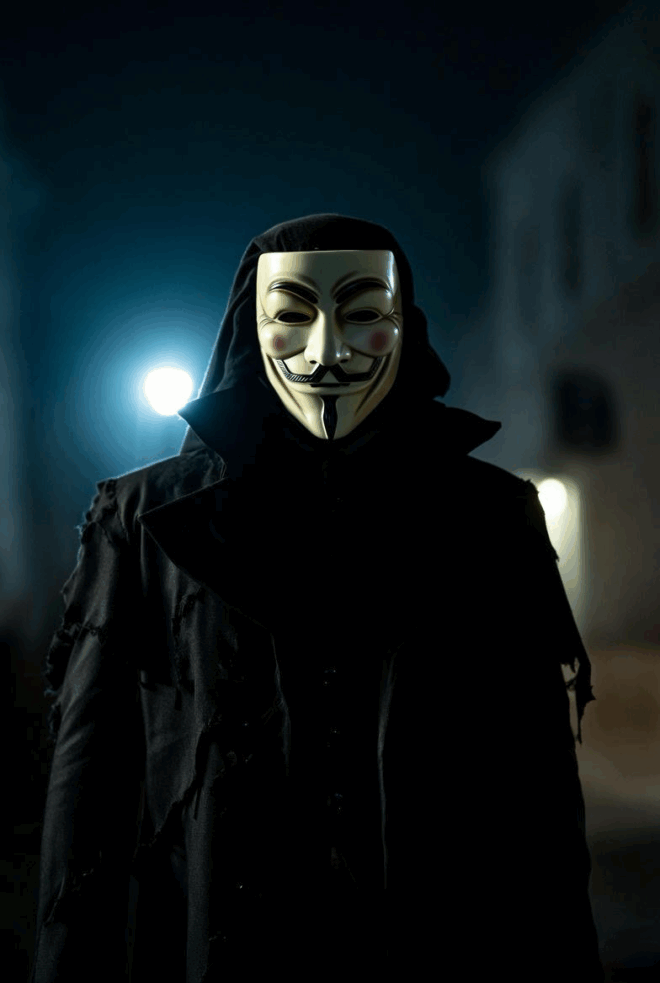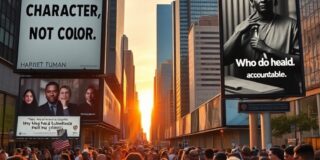
Against vast walls where shadows whisper lies,
A single voice recalls what once was free –
Though time and tyrants bury every plea,
The embered truth beneath the silence sighs.
They tear our books, and break what hope we keep,
Erase the names and faces from our town,
Yet memory – unyielding – won’t lie down,
It wakes in dreams, it marches from our sleep.
Because they fear what cannot be erased:
A story told, a photograph retained,
The mother’s tear, the martyr’s love unchained –
Such fragments, history’s marrow, fiercely braced.
The struggle stands: behind each battered hour,
The soul remembers, fighting death by power.
Bakchos
Introduction
“The struggle of man against power is the struggle of memory against forgetting.” These powerful words from Milan Kundera encapsulate the eternal battle against oppression, where the powerful seek to erase the narratives of the marginalised, while the oppressed cling to their memories as a form of resistance. This theme resonates deeply across literature and film, particularly in Victor Hugo’s monumental novel Les Misérables (1862), George Orwell’s dystopian masterpiece 1984 (1949), and the 2005 film V for Vendetta, directed by James McTeigue and adapted from Alan Moore and David Lloyd’s graphic novel. Hugo’s epic chronicles the plight of the oppressed in 19th-century France, focusing on social and economic injustices that fuel class conflict and revolutionary change. Orwell’s narrative warns of a totalitarian future where the state obliterates individual thought, history, and freedom through pervasive surveillance and psychological manipulation. V for Vendetta, set in a fascist near-future Britain, synthesises these elements, blending Hugo’s humanistic redemption with Orwell’s cautionary tale of ideological control, while adding a layer of anarchist resistance.
At its core, Les Misérables is not merely a story of individual suffering but a scathing critique of 19th-century French society, where economic exploitation and political tyranny crush the lower classes. As Norman Denny notes in his introduction, “Hugo was always… deeply concerned with the social and political developments of his time,” reflected in his depictions of events like the June Rebellion of 1832, sparked by General Lamarque’s death, a champion of the poor. The novel’s political stance aligns with Marxist theories, emphasising the lower classes’ struggle against injustice and the inevitability of revolutionary change from the working class. Characters like ex-convict Jean Valjean and prostitute Fantine embody this fight, with Hugo portraying poverty as a force driving desperation and rebellion. Duncan Heath describes Hugo’s Parisian underworld as “essentially socialist,” highlighting campaigns for social justice, against monarchy, wars, and capital punishment.
In contrast, 1984 presents a nightmarish Oceania under the Party’s rule, where Big Brother symbolises absolute control. Winston Smith’s rebellion underscores the erasure of personal and collective memory, drawing from Stalinist and Nazi regimes. V for Vendetta bridges these worlds, with its masked protagonist V orchestrating a revolution against the Norsefire regime, incorporating surveillance from 1984 and themes of personal transformation from Les Misérables, notably through visual nods like Evey’s pose echoing Émile Bayard’s illustration of Cosette. The film, released post-9/11, critiques contemporary authoritarianism, influenced by Thatcher-era Britain and historical figures like Guy Fawkes.
This essay merges analyses of these works into a cohesive exploration of oppression, law, memory, resistance, and contemporary parallels. By comparing their representations of power, we uncover Hugo’s optimistic humanism contrasting Orwell’s bleak pessimism, with V for Vendetta offering a cinematic synthesis that inspires modern activism. Despite differing contexts, Hugo’s Romantic era, Orwell’s post-World War II disillusionment, and the film’s 21st-century anxieties, these narratives affirm Kundera’s struggle, reminding us that memory fuels resistance against forgetting.
Representations of Political Power and Oppression
Political power in these works is depicted as a dehumanising force, manifesting through institutional corruption, economic exploitation, and ideological domination. In Les Misérables, Hugo illustrates power via a stratified society where the monarchy and bourgeoisie oppress the proletariat. Valjean’s initial crime, stealing bread to feed his starving family, results in 19 years of hard labour, symbolising a justice system that punishes survival while ignoring systemic poverty. Fantine, abandoned and forced into prostitution, is arrested for retaliating against a bourgeois tormentor, highlighting class conflict. Marx’s The Communist Manifesto echoes this, stating that history is marked by struggles where “oppressor and oppressed, stood in constant opposition to one another.” Hugo’s narrative, set against the June Rebellion, an anti-monarchist uprising by students and Republicans, portrays power as tied to economic injustice, with the Parisian underworld representing socialist resistance against kings and capital punishment.
Oppression here is multifaceted: economic, as characters face poverty’s horrors; social, through class divides; and political, via tyrannical governance. Hugo’s leftist evolution, from conservative to radical exile – infuses the text with advocacy for the poor, critiquing a society permeated by “inhumane lack of civilisation.” The novel’s wealth of negative examples; prisons, slums, and uprisings, serves as an outcry against these ills, aligning with Marxist views on revolutionary inevitability from the working class.
1984 escalates oppression to a totalitarian extreme, where power is abstract and omnipresent. The Party, led by Big Brother, controls every facet of life through the Thought Police, telescreens, and ministries that invert truth: the Ministry of Truth fabricates history, Peace wages war, and Love inflicts torture. Winston’s role in altering records exemplifies how power maintains dominance by erasing contradictions. Unlike Hugo’s tangible exploitation, hunger, chain gangs, Orwell’s is psychological: Newspeak limits thought, doublethink enforces contradictions like “War is Peace.” This draws from mid-20th-century dictatorships, warning of power’s evolution from brute force to internalised control. Oppression alienates individuals, turning society into a panopticon where surveillance self-regulates behaviour, as Foucault’s theories on power suggest.
V for Vendetta synthesises these portrayals, depicting a fascist Britain under Norsefire, risen from chaos via engineered crises like viruses. Chancellor Sutler’s regime mirrors 1984’s surveillance with “Fingermen” enforcing curfews and propaganda, while incorporating Hugo’s social marginalisation through concentration camps targeting minorities, immigrants, and dissidents. V, a victim of experiments (echoing Orwell’s Room 101 torture), embodies the oppressed’s transformation, much like Valjean’s bitterness turning to humanism. The film’s oppression blends economic divides, post-apocalyptic scarcity, with ideological control, using fear to dominate. Visual elements, such as Evey’s shaved head symbolising rebirth, parallel Valjean’s identity shifts, while V’s mask anonymises resistance, drawing from Guy Fawkes’ historical rebellion.
Comparatively, Hugo’s power is historical and reformable, tied to 19th-century capitalism; Orwell’s is futuristic and absolute, leading to dystopian despair; V for Vendetta’s is contemporary, blending both in a post-9/11 critique of authoritarianism. All three highlight power’s dehumanising effects, but differ in scope: Hugo’s class-based, Orwell’s ideological, and the film’s hybrid, reflecting evolving threats from industrial revolutions to digital surveillance.
The Role of Law, Authority, and Justice
Law and authority in these narratives expose systemic hypocrisy, where rules serve the powerful rather than justice. In Les Misérables, Inspector Javert personifies rigid legalism, pursuing Valjean with unwavering zeal. Mistaking the mayor for a convict, Javert declares, “I denounced you as a convict – you, a respectable man, a mayor, and a magistrate. This is a serious matter, very serious.” His mantra, “I am the Law and the Law is not mocked,” underscores a binary worldview where sympathy is weakness. Hugo pities Javert, noting that virtues like duty “may become hideous when wrongly directed,” culminating in his suicide upon recognising Valjean’s moral superiority. This critiques a system that mocks justice by punishing the poor, Valjean’s bread theft, while ignoring elite corruption.
Hugo’s theme draws from political philosophy: What basis for civilised society? He answers through negatives, inhumane prisons, exploitative factories, advocating compassion over blind adherence. Javert’s integrity, though flawed, contrasts modern institutions that bend laws for gain, as seen in allegations against the Australian Federal Police (AFP) misusing child sex tourism laws in cases like Julian Moti QC or Captain Fredrick Martens, where political motives trump justice.
In 1984, law is arbitrary, existing solely to perpetuate power. The Ministry of Love’s Room 101 breaks spirits through personalised torture, with O’Brien asserting, “Power is not a means; it is an end.” Unlike Javert’s misguided honour, O’Brien’s authority is sadistic, using doublethink to justify atrocities. Justice is illusory; surveillance ensures compliance, rendering law a tool of oppression rather than protection. Orwell’s vision warns that unchecked authority eradicates humanity, drawing from totalitarian regimes where law mocks freedom.
V for Vendetta inverts this, with Norsefire’s corrupt judiciary serving the regime’s whims. V acts as vigilante judge, conducting mock trials on officials, echoing Javert’s pursuit but as resistance against a mocking state. His hacking of media to broadcast truth defies Orwellian propaganda, while his vendetta parallels Valjean’s escapes. The film questions vigilante justice: V’s terrorism blurs hero-villain lines, prompting reflection on means versus ends – a nuance absent in the novels’ clearer morals. Authority here is fascist, blending 1984’s ideological control with Hugo’s social injustice, as camps echo prisons and uprisings.
Across the works, law’s role evolves: Hugo’s rigid but redeemable, Orwell’s absolute and destructive, V for Vendetta’s corrupt but challengeable through anarchy. All critique how authority mocks justice, urging humane application. In Hugo, Javert’s death signals hope; in Orwell, Winston’s capitulation despair; in the film, V’s legacy inspires mass action.
Memory, Forgetting, and the Struggle Against Power
Kundera’s quote finds explicit resonance in these works, where memory combats power’s erasures. In 1984, the Party manipulates history via “memory holes”, incinerating truths. Winston’s insight – “Who controls the past controls the future” – illustrates how forgetting sustains oppression, rewriting alliances and events to fit narratives. Personal memory is assaulted: Winston clings to maternal love but betrays Julia under torture, accepting falsities. This internalised forgetting alienates, preventing rebellion by denying shared history.
Les Misérables employs memory as resistance against societal neglect. Hugo revives forgotten tales – the miserables’ sufferings, the 1832 uprising – to counter amnesia. Valjean’s past fuels redemption: robbed by prison’s bitterness, Bishop Myriel’s mercy transforms him, symbolising memory’s role in moral growth. Unlike Orwell’s deliberate erasure, Hugo’s is passive forgetting by the powerful, revived through revolution and humanism.
In V for Vendetta, memory drives rebellion: V’s chant, “Remember, remember the fifth of November,” invokes Guy Fawkes, countering regime-induced amnesia. Norsefire rewrites history like 1984’s Ministry, but V preserves truth via symbols and art. Evey’s “rebirth” – enduring torture, emerging empowered – mirrors Valjean’s shifts, using oppression’s memory to resist. The Cosette allusion evokes Hugo’s lost innocence remembered.
Comparatively, Orwell posits power conquers memory, leading to subjugation; Hugo sees it as progressive fuel; V for Vendetta blends, with memory sparking collective awakening. All warn forgetting perpetuates cycles, tying to Kundera’s struggle.
Resistance, Redemption, and Visions of the Future
Resistance varies from collective hope to solitary defeat. In Les Misérables, it’s multifaceted: Valjean’s personal redemption via humanism, saving Cosette, rescuing Marius, embodies change. Collective action – the ABC Society’s barricades, challenges tyranny, though failing, symbolises working-class revolution. Hugo’s vision is utopian: liberal democracy triumphs over despotism.
1984’s resistance is doomed: Winston and Julia’s affair defies the Party, but surveillance and torture crush them. Winston’s diary preserves truth futilely, ending in love for Big Brother, a dystopian boot “stamping on a human face – forever.”
V for Vendetta bridges: V’s revolution, bombing Parliament, inspiring masked crowds, echoes Hugo’s uprisings, while defying surveillance nods to Orwell. V’s redemption, passing ideals to Evey (“Ideas are bulletproof”), parallels Valjean’s legacy, offering anarchist hope amid despair.
Hugo’s optimism stems from Romantic faith; Orwell’s pessimism from war; the film’s synthesis mobilizes, influencing movements like Occupy.
Cinematic and Literary Syntheses: V for Vendetta as a Bridge
V for Vendetta synthesises Hugo and Orwell, adapting themes to critique modern tyranny. Influenced by 1984, it depicts surveillance Britain with propaganda mirroring the Ministry of Truth, rooted in Moore’s Thatcher critique. Links to Les Misérables are thematic: V parallels Valjean – imprisoned unjustly, emerging vengeful yet redemptive. Both change identities; V’s mask echoes Valjean’s ruses. Evey’s arc mirrors Cosette’s innocence lost, with visual duplications of Bayard’s art.
Oppression fuses: camps for “deviants” blend Hugo’s social exclusion with Orwell’s ideological purge. Resistance culminates in mass action, reviving Fawkes’ memory against forgetting. The film’s post-9/11 context adds terrorism’s complexity, questioning V’s methods while affirming ideas’ endurance – a bridge between Hugo’s humanism and Orwell’s warning.
Parallels to Contemporary Society
These themes mirror today’s world, where oppression intertwines economic greed and digital control. Hugo’s class struggles reflect global inequalities; Orwell’s surveillance echoes data privacy breaches; V for Vendetta’s masks inspire protests like Anonymous.
Modern examples include institutional corruption: the AFP’s alleged political misuse of laws in Moti, Martens, Haneef, and Habib cases mocks justice, akin to Javert’s rigidity twisted. E&Y’s roles in Lehman collapse and Freeport audits – overlooking payments to Indonesian military enabling West Papuan abuses, echo Hugo’s exploitation. ACT Government’s fitting-up of officials to hide treasury corruption parallels regime cover-ups in 1984 and V for Vendetta.
In West Papua, human rights violations amid corporate greed mock international law, while post-Lehman fallout disproportionately harmed the poor. These cases illustrate oppressor-oppressed dynamics, where power mocks law for ends foreign to justice – something Javert would abhor. Literature urges remembrance: forgetting allows repetition, but memory drives change.
Extending this analysis, Margaret Atwood’s The Handmaid’s Tale (1985) provides another dystopian lens on oppression, particularly gendered and theocratic control, which resonates with the themes in Hugo, Orwell, and V for Vendetta. In Gilead, women are stripped of autonomy, reduced to reproductive roles under a fundamentalist regime that justifies tyranny through religious ideology. This mirrors 1984’s ideological domination, where the Party enforces conformity, and V for Vendetta’s fascist state that marginalises “deviants.” Atwood’s narrative, like Hugo’s portrayal of Fantine’s exploitation, highlights how power subjugates the vulnerable, using law as a tool of subjugation rather than protection. The Commanders’ hypocrisy echoes Javert’s rigid enforcement, blind to moral nuance, while the Eyes’ surveillance parallels Big Brother’s telescreens.
Comparisons to Trump’s America amplify these parallels, with critics drawing eerie connections between Gilead and policies under the Trump administration. For instance, restrictions on women’s rights, such as debates over abortion and reproductive freedom, evoke the Handmaids’ forced servitude, where bodies become state property. Media and cultural commentators have noted how Trump’s rhetoric and actions – framed as protecting “traditional values” – mirror Gilead’s theocracy, fostering a climate where dissent is labelled unpatriotic. This extends to real-world authoritarian tactics, such as ICE raids during Trump’s tenure, which saw a nearly 40% increase in immigration arrests in 2017, targeting undocumented immigrants and instilling fear in communities. These operations, often conducted in workplaces and homes, echo the regime’s purges in The Handmaid’s Tale and V for Vendetta’s concentration camps, where marginalised groups are dehumanised and erased from society.
Furthermore, Trump’s deployment of federal agents to Democratic-led cities during the 2020 protests, such as in Portland, Chicago, and Albuquerque, represents a militarised enforcement of order, criticised as a political ploy to portray opponents as chaotic. Under initiatives like Operation Legend, hundreds of agents were surged into these areas amid racial justice demonstrations, blurring lines between law enforcement and political suppression. This tactic evokes 1984’s Thought Police quelling dissent and Les Misérables’ barricades, where state power crushes rebellion under the guise of maintaining peace. In Trump’s narrative, these interventions targeted “liberal Democrats,” framing urban unrest as a failure of local governance, much like how Gilead’s leaders justify oppression as divine order. Such actions not only mock democratic principles but also parallel the forgetting in Kundera’s quote, as official narratives rewrite protests as riots to justify force.
Integrating The Handmaid’s Tale with these events underscores how fiction anticipates reality: Atwood’s warning of environmental and political collapse leading to theocracy finds echoes in Trump’s America, where immigration raids and federal overreach target the “other,” reinforcing divisions. Resistance, as in the works, emerges through memory, documenting abuses, protesting, and voting, to prevent a slide into dystopia. These parallels remind us that oppression thrives on amnesia, urging vigilance in democratic societies.
In Trump’s America of 2025, during his second term, these themes of power and oppression take on a stark contemporary form, marked by executive overreach, institutional dysfunction, and cultural shifts that border on authoritarianism. Trump’s administration has issued over 200 executive orders by mid-2025, implementing aspects of Project 2025, a conservative blueprint for restructuring the federal government that expands presidential powers while imposing ultra-conservative policies on immigration, education, and civil rights. Critics argue this has led to a dysfunctional government, with cabinet picks prioritising loyalty over expertise, resulting in agency turmoil and resignations at the DOJ and FBI. Economic policies aimed at “making America great again” have been mixed, with promises of skyrocketing incomes and vanishing inflation clashing against persistent challenges, leading to approval ratings hovering around 40%, low but stable amid partisan divides.
Amid this backdrop of perceived dysfunction, characterised by impoundment of congressional funds, Supreme Court rulings favouring executive authority, and internal rifts like those between DNI Tulsi Gabbard and CIA Director John Ratcliffe, the near deification of Charlie Kirk emerges as a potent distraction. Kirk, the conservative activist and founder of Turning Point USA, was assassinated in September 2025 during a campus event in Utah, an act attributed to ideological hatred. In death, Kirk has been elevated to martyr status within conservative circles, with memorials blending calls for forgiveness and vengeance, highways named in his honour (such as in Lake County, Florida), and phrases like “What Would Charlie Kirk Do?” circulating as guiding principles. Trump allies praise Kirk’s faith and influence, crediting him with mobilising young voters for Trump’s 2024 victory and placing his followers in government roles. This posthumous reverence, complete with campaigns to ostracise or fire his critics, mirrors the ideological control in 1984, where figures are rewritten into symbols of the regime, and the revolutionary fervour in Les Misérables, where champions of the poor like Lamarque spark uprisings.
Kirk’s near deification serves as a distraction from Trump’s dysfunctional presidency, channelling conservative energy into cultural battles and loyalty tests rather than addressing policy failures. For instance, while Trump’s administration grapples with UN incidents, economic pessimism, and internal leaks, the focus on honouring Kirk, through revivals, media tributes, and punitive actions against detractors, fosters unity among the base, deflecting scrutiny from low job approvals and controversial decisions like foreign aid cuts. This dynamic echoes V’s mask in V for Vendetta, anonymising resistance but here co-opted to mask administrative chaos. Positive views highlight Trump’s “America First” priorities and potential economic booms, but critics see a slide toward authoritarianism, where distractions like Kirk’s legacy perpetuate forgetting of systemic issues. In this 2025 landscape, Kundera’s struggle intensifies: memory of Kirk’s ideals is wielded to erase critiques of power, urging a balanced reckoning to avoid dystopian pitfalls.
Oppression as a Universal Injustice: Extending the Lens
Beyond the primary works, oppression’s universality – economic, political, racial – binds them. In Les Misérables, it’s economics: poverty forces terrible choices, class struggles evident in Fantine’s arrest. Any oppression is injustice, regardless of motive. This extends to modern victims: Indigenous Pacific peoples, West Papuans suffering military abuses incentivised by Freeport payments, audited by EY. Cathal Lyons’ whistleblowing on EY bribery mocks law, as does altering files at government behest.
1984’s psychological oppression parallels digital infrastructure hacks in critical sectors, while V for Vendetta’s fascism warns of rising populism. All emphasise resistance: from barricades to hacks, memory against forgetting.
Conclusion
As we merge these profound analyses, the shared critiques of power across Les Misérables, 1984, and V for Vendetta lay bare a chilling continuum: from Hugo’s flickering hope in human redemption amid class warfare, to Orwell’s unrelenting despair under the boot of total surveillance, to the film’s explosive synthesis of anarchist defiance against fascist veils. Yet, beneath these narratives lies a unifying force – memory – not as a passive relic, but as the razor-sharp tool that slices through the illusions of authority, exposing the raw, festering wounds of oppression that societies so desperately try to conceal.
Peeling back the layers reveals the dark realities: oppression is not merely historical or fictional but an insidious shape-shifter, cloaked in the rhetoric of justice, progress, or patriotism. In Hugo’s France, it hides behind the facade of law, condemning the starving while shielding the elite; in Orwell’s Oceania, it masquerades as truth, rewriting history to devour the soul; in V for Vendetta’s Britain, it drapes itself in security, justifying camps and curfews that echo the very tyrannies we claim to abhor. And in our own era, from the corporate shadows of West Papua to the militarised streets of Trump’s America, these layers thicken, with distractions like the deification of figures such as Charlie Kirk diverting eyes from dysfunctional governance, while ICE raids and federal incursions strip away dignity under the guise of order.
But herein lies the power: to remember is to resist. Kundera’s struggle demands we pierce these veils, unmasking how power mocks justice, erases truths, and perpetuates cycles of suffering. In an age of rampant inequality, pervasive surveillance, and creeping authoritarianism, these works do not merely urge action, they command it. Forge societies where law serves the oppressed, not the oppressors; where memory illuminates the hidden horrors, igniting revolutions of the mind and spirit. For if we forget, the darkness wins, not with a bang, but with the silent complicity of those who looked away. Let us remember, then, and in remembering, dismantle the chains.



